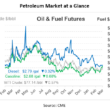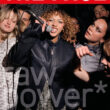Sinead Boucher, CEO of Stuff Ltd., Fairfax Media’s New Zealand subsidiary, is completing a hastily-arranged MBO from its Australian parent Nine Entertainment Company. NEC, Australia’s largest media group, had acquired Sydney-based Fairfax Media for A$1.6bn in 2018.
Stuff owns New Zealand’s largest news website (launched in 2000), nine daily newspapers including The Dominion Post and The Press, and the social media network Neighbourly. It employs some 900 people, all of whom are expected to be offered shares in the new company.
While NEC will receive only a nominal down-payment for the deal, it will retain the Wellington print plant, which will be leased back to Stuff. It will also receive 25% of the proceeds from the planned sale of internet provider Stuff Fibre and a further 75% over the following 36 months, an arrangement to help the new company manage its working capital and also give it time to seek new long-term partnerships and/or shareholders. NEC expects to write-off some $40-50m in its 2020 accounts related to the divestment.
The MBO follows a series of attempts to sell Stuff including a proposed merger with broadcasting and news group New Zealand Media & Entertainment (NZME) which was last year blocked by regulatory authorities. NZME had recently renewed a messy campaign to acquire Stuff and this month tried (but failed) to get a court injunction to block the MBO which was only negotiated in the last few weeks.
Sinead Boucher is a former journalist in the UK and New Zealand, variously for the Financial Times, Reuters, and Fairfax. She had first become a reporter for Fairfax in 1993 and was appointed CEO of Stuff Ltd/ Fairfax Media NZ in 2017 after almost 10 years as its Group Digital Editor.
She is credited with playing a key role in the transformation of the company from a newspaper publisher with a web site to a substantial digital media group which is also one of the country’s best-known brands. Former Fairfax CEO Greg Hywood has described her as “an impressive force in modern media”. One insider told us the Irish-born Boucher is “nice, self-assured, thoughtful and confident, a natural leader”.
She said this week: “Today is an important moment for Stuff as a business. It is great to take control of our own future with the move to local ownership and the opportunity to build further on the trust of New Zealanders, who turn to us for local and national news and entertainment every day.”
The cold reality, though, is that these are tough times for a legacy media group, albeit one with an excellent digital business. The soft funding deal with NEC helps, and the CEO’s next steps may just be to negotiate a suitable longterm partnership, perhaps with an international media group or a financial backer.
Boucher says there are no plans for a merger with another company or to rationalise the business further, but the MBO did not alter “the overall dynamics” of the media industry.
Soon after being appointed CEO, she had said her plan was to diversify the company away from a reliance on publishing revenues, to a range of initiatives that would give the company “a more stable and sustainable fate”. That objective might now be even more important but also much more difficult to achieve.
Bauer: Last month, Bauer Media Group, of Germany, abruptly closed what is New Zealand’s largest magazines group and planned to sell-off the brands including NZ Woman’s Weekly, NEXT, North & South, The Listener, Metro, Taste, FQ, Your Home & Garden, Simply You, Home, Good Health and Wellbeing, and the website noted.co.nz. The deadline for non-binding offers is today (May 29).
Meanwhile, Bauer is believed (but not confirmed) to be negotiating the sale of its market-leading Australian magazines group to private equity. The company acquired the former ACP Magazines in 2012 and recently acquired its nearest rival Pacific Magazines for a A$40m price tag that had been agreed pre-Covid. But, even with an estimated 60%+ of the magazines market, the enlarged Bauer Media Australia may not fetch a price even equivalent to 20% of the A$750m it has invested in the business.
In Jan-March this year, Australian magazine advertising revenues fell 23% to A$15.9m after the country’s bushfires and only the early signs of pandemic. The second quarter may be even worse.




